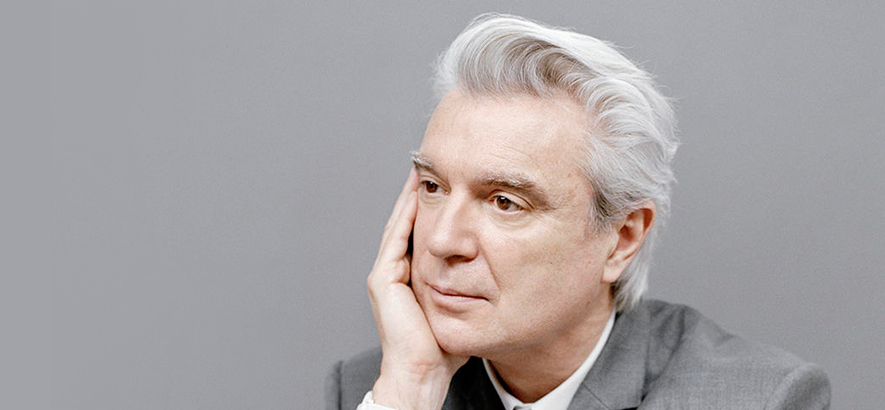chevron_left
-
play_arrow
NGradio So good... like you
There aren’t many people that have avoided the influence of the freewheelin’ troubadour, Bob Dylan. The singer-songwriter is such a behemoth of culture that to forget his contribution to pop music is to ignore his decades-long impact willfully. Any songwriter worth their salt would point to the “voice of his generation” as a talent to be revered and studied. As such, the idea that David Byrne may cite one of his songs as an eye-opening moment in his life is not unusual. However, the version of that track is a little out of leftfield.
The man who once said, “Say something once, why say it again?” notably picks a cover of Dylan’s song ‘Mr Tambourine Man’ as the moment music finally made sense to him and the world beyond his four walls was opened up. Speaking with Pitchfork, Byrne named The Byrds’ enigmatic cover of the track as one of the most important musical moments in his life. It was a pivotal moment for Dylan, too, if for different reasons.
If there’s one moment that signifies Dylan ascendancy from folk act to international star, it was when he “went electric” and plugged in his acoustic guitar. It was a moment undoubtedly buoyed by The Byrds cover of ‘Mr. Tambourine Man’.
Dylan had put the song down in 1965 as part of his Bringing It All Back Home sessions, and The Byrds had managed to grab hold of an early copy. Listening to the acetate, the group were convinced it was perfect for their debut album and, of course, it was. The Byrds’ version of the song is nothing short of magnificent and arguably one of the most important releases of Dylan’s career. Its success put The Byrds on the map, enlivened a folk scene on the West Coast and encouraged Dylan to plug into the amps that summer at the Newport Folk Festival.
For a young David Byrne, the track was just as revolutionary, if only on a more personal level. “The Bob Dylan song ‘Mr. Tambourine Man’ was like a psychedelic version of a Woody Guthrie song,” Byrne told Pitchfork. “But then the Byrds turned it into something, unlike anything my young ears had heard before. It sounded like jangly pots and pans, bells. If you’re someone who grew up in the suburbs of Baltimore, the song is like a little telegraph from someplace else. Hearing that, I realised: I have to get out of here because there are people in other places. There’s a whole world out there that I don’t know anything about.”
It was a landmark moment for the young Byrne, who was not only captivated by the music and its power but the idea that a new world lay outside, ready for his imprint if only he could reach it. “I had an idea that I would play great literate rock songs in coffee houses around Baltimore,” Byrne said. “I did that for a little while, which was kind of ambitious for a high school kid. I’d do songs by The Kinks or The Who or songs with really insightful lyrics that the folkies had never heard before. My parents went to my shows once in a while, but not a lot.”
The Bob Dylan impression left upon Byrne would not go away, however, and as he drifted around art school, he would eventually be drawn to the ideals of Dylan’s New York once more. “A friend and I had a group where I played ukulele and violin, and he played accordion, often in the street,” Byrne continues. “We played standards and were kind of eccentric-looking. I would dress in old suits and had a long beard, and kids would come up to me and say, ‘Mister, are you one of those men who don’t drive cars?’ I was not.”
With their folkish nuances, Byrne and partner would head into the sweltering NYC scene, which was then pregnant with the upcoming punk scene. “We’d heard about the Warhol scene at Max’s Kansas City, and so my friend and I went in there—with the full beard and everything—curious to see where the cool people were. We were so out of place, and I remember David Bowie came in dressed in his full glam outfit, with the orange hair, the spacesuit, everything. And I just thought, We don’t fit in here. We better go.”
Byrne would soon return to those same streets as punk was birthed but, rather than fitting in and waiting in single file for his and his new band, Talking Heads’ chance at the big time, the group produced an antidote to the doldrums of punk rock. If there was one thing vital to Byrne’s success and influential career, then it must be his vision. For that reason, we have Bob Dylan and The Byrds to thank for opening his eyes.
Written by: New Generation Radio
Similar posts
ΔΗΜΟΦΙΛΗ ΑΡΘΡΑ
COPYRIGHT 2020. NGRADIO





















Post comments (0)